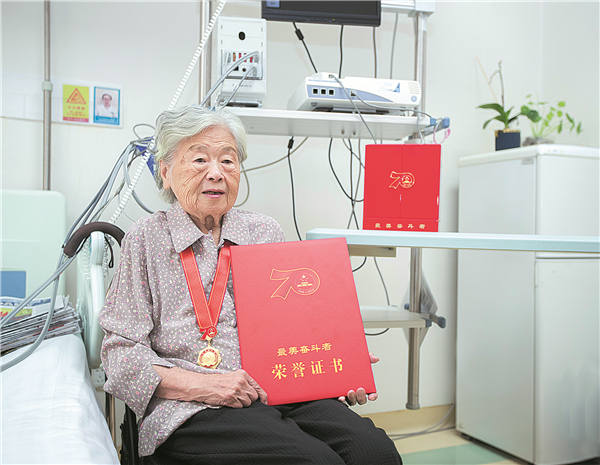The doctor who defeated leprosy
By Wang Ru | China Daily | Updated: 2021-08-30 08:07

"In the past, if one person had this disease, the whole family would be expelled to remote mountainous areas and they had to live in a self-sufficient way by cultivating the waste land and growing crops. Gradually, a village was formed by the deserted people," says Ai Nuo, who used to be a leprosy patient, at a seminar discussing Li's contribution in Beijing on Aug 5.
"At that time, people were even prejudiced against those who worked to control leprosy, not to mention the patients themselves. When we arrived at the village, we always wore two layers of protective suits, lifting the medicines with a pole and sending them to the patients without direct touch," says Yang Jun, former Party secretary of Yunnan's Center for Disease Control and Prevention.
Li chose Ai's village in Mengla county, Xishuangbanna Dai autonomous prefecture, Yunnan province, as a pilot area for MDT and arrived there in 1979. Leprosy patients were surprised to find the expert was not afraid of them like others had been, and would talk with them, hold their hands tightly, and even share meals with them.
"As a doctor, I should not be afraid of the disease. I know leprosy is not so infectious, and even if I was infected, I had the confidence to cure myself," Li says in the CCTV-10 interview program Great Masters from 2010.
"The point is, I didn't want to make the patients feel that I was superior. I wanted to cooperate with them, and I had to respect them. They have been discriminated against for a long time, so they must have been sensitive about any behavior suggesting prejudice," she adds. Following her example, many local officials began to get close with the patients.
Dao Jianxin, father of Ai Nuo, was the only one who could speak Mandarin in the village when Li arrived. He used to be an official of Mengla county, but his life changed when he contracted leprosy in the 1960s. "Even when he handed in his Party membership dues, nobody dared to receive the money from his hand," says Ai.
He moved to the leprosy village, and saw his hands and feet fester. His fingers and toes were also affected. But when Li arrived, she moved her laboratory to the village and sent medicine every day and ensured the villagers took it. Dao gradually found hope when the symptoms abated, as did the other villagers.
After 24 months of treatment, the symptoms disappeared in the 47 patients who received MDT.Over the next decade, Li paid frequent visits to the village to check their condition. She also set up another pilot area in Shandong province as a comparison, measuring the effect of MDT.
On April 17, 1990, it was officially announced that leprosy was wiped out in the village, and it was renamed Mannanxing village, which means "rebirth" in the dialect of the Dai ethnic group.
"I have been buried in the soil for 21 years, but you pull me out," an emotional Dao said to Li during the ceremony.























